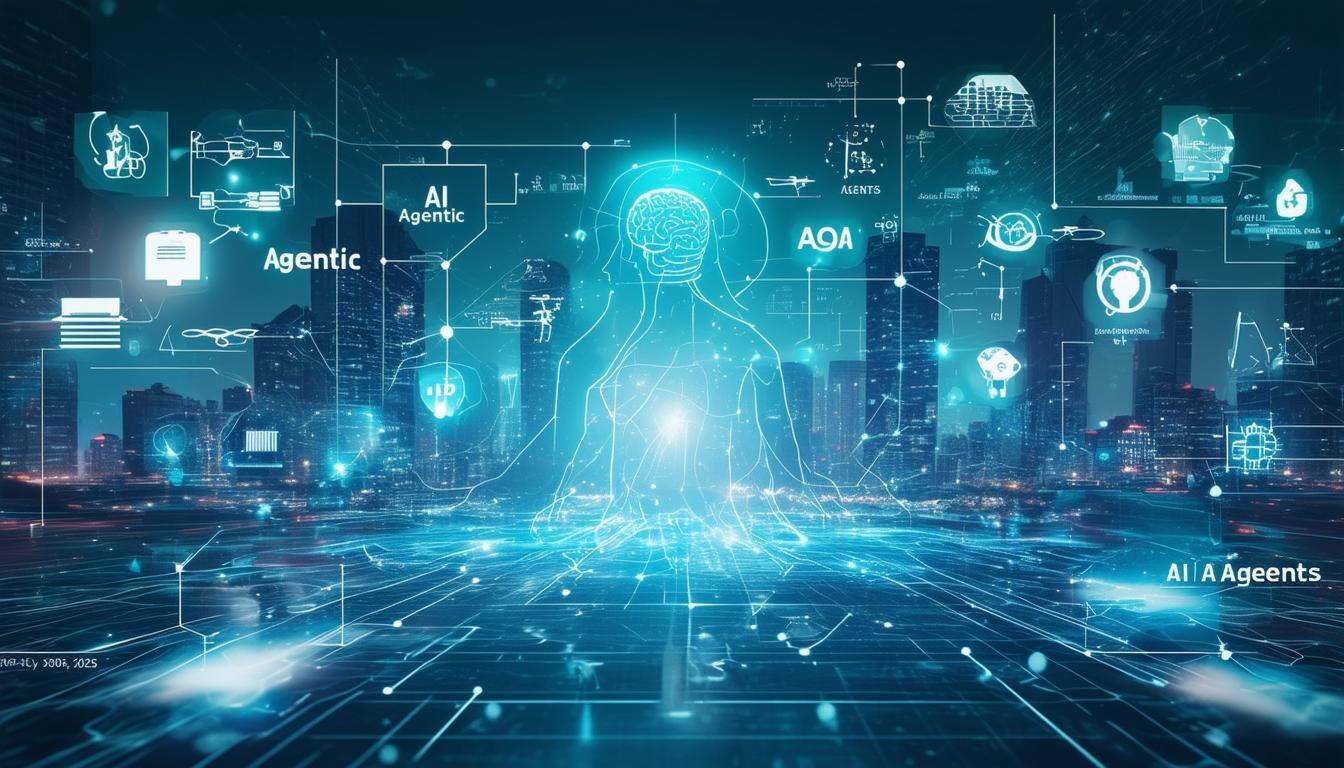
In the fast-evolving landscape of artificial intelligence, a new role is emerging – the AI Coach. But before you imagine another AI application or chatbot, let me clarify: this is about human experts who guide business leaders in leveraging AI technologies effectively.
The AI Implementation Challenge
Imagine being the head of R&D at a major automobile company, working on next-generation electric vehicles. You have decades of expertise in automotive engineering, countless test reports, and valuable historical data. You know AI could help, but where do you start? How do you translate your domain expertise into AI-powered solutions?
This scenario played out recently at a leading EV manufacturer. Their R&D head faced the challenge of accelerating battery testing cycles while ensuring safety and reliability. The traditional process involved weeks of physical testing, manual analysis of historical data, and lengthy iteration cycles. The potential for AI was clear, but the path to implementation wasn’t.
Enter the AI Coach.
Through structured coaching sessions, the R&D head learned about Retrieval-Augmented Generation (RAG) and other AI technologies. More importantly, they learned how to think about their challenges through an AI lens. The result? The team implemented an AI-powered enterprise knowledge management system that transformed their R&D process. Physical testing cycles were reduced by 40% through better initial designs informed by AI-analyzed historical data.
This success story illustrates why we need AI Coaches. While generative AI is a powerful technology, its generic nature means that achieving ROI requires deep understanding of both the technology and the specific domain where it’s being applied. Domain experts have the industry knowledge but often lack the time or resources to experiment with AI technologies. This gap is where an AI Coach becomes invaluable.
Think of it like health coaching. We all want to be healthy, but few of us have the time or expertise to master nutrition, exercise science, and wellness practices. A health coach bridges this gap, providing guidance while we do the actual work. Similarly, an AI Coach provides the expertise and guidance needed to transform domain knowledge into AI-powered solutions, while the business leaders and their teams drive the actual implementation.
As organizations globally grapple with AI adoption, the need for AI Coaches becomes increasingly clear. These coaches combine technical expertise with coaching skills to help leaders navigate the AI transformation journey, turning potential into tangible business value.
The AI Coach Profile: A Unique Blend of Technical and Human Skills
What makes an effective AI Coach? It’s a rare combination of technical expertise and human-centric coaching abilities. Like a conductor who must understand both music theory and how to bring the best out of each musician, an AI Coach needs to master both the technology landscape and the art of coaching.
Technical Foundation
An AI Coach must possess a deep understanding of:
- Generative AI Technologies: Beyond surface-level knowledge, they need to understand the capabilities, limitations, and best practices of various AI technologies.
- Business Systems: A solid grasp of how enterprises operate, from workflows to infrastructure, ensuring AI solutions integrate seamlessly with existing systems.
- IT Architecture: Understanding of technical infrastructure, data management, and system integration to guide realistic implementation strategies.
Coaching Excellence
However, technical knowledge alone isn’t enough. The role demands exceptional coaching abilities:
- Active Listening: The ability to understand not just what is being said, but the underlying challenges and opportunities in each domain.
- Communication Skills: Translating complex technical concepts into business-relevant language while maintaining technical accuracy.
- Coaching Methodology: Expertise in guiding discovery, fostering learning, and facilitating implementation without doing the work for the client.
The Magic in the Middle
What makes AI Coaches particularly valuable is how they bridge these two worlds. They don’t just understand AI and business separately; they excel at identifying where and how AI can create the most value in specific business contexts.
Consider our automotive R&D example. The AI Coach didn’t just explain RAG technology; they guided the R&D head through a discovery process. By asking thought-provoking questions like “If you had unlimited human analysts, how would you reimagine your testing process?”, they helped translate domain expertise into AI opportunities.
This approach differs significantly from traditional technology consulting. Instead of delivering solutions, AI Coaches enable leaders to:
- Discover opportunities within their domain
- Learn enough about AI to make informed decisions
- Build internal capabilities for long-term success
- Drive implementation with confidence
The result is not just successful AI implementation but also organizational learning and capability building that extends far beyond the initial engagement.
How AI Coaching Works: The Practice of Guided AI Transformation
AI Coaching, like executive or health coaching, is fundamentally a one-on-one relationship focused on achieving specific outcomes. Let’s dive into how this works in practice.
The Coaching Structure
The AI coaching engagement typically follows a structured yet flexible approach:
- Discovery Sessions
- Understanding the leader’s domain expertise and challenges
- Identifying potential areas where AI could create value
- Setting clear objectives and success metrics
- Regular Coaching Sessions
- Typically bi-weekly one-on-one meetings
- Structured discussions around specific challenges and opportunities
- Learning sessions tailored to the leader’s needs and context
- On-demand Support
- Quick consultations for pressing questions
- Review of plans and approaches
- Guidance during critical decision points
The Coaching Process in Action
Let’s return to our automotive R&D example to see how this works in practice:
Week 1-2: Discovery and Vision
- The R&D head shared current challenges in battery testing
- Through coached exploration, they imagined an ideal future state
- Together, they identified knowledge management as the initial focus area
Week 3-4: Learning and Planning
- The coach introduced RAG technology concepts
- The R&D head learned enough to envision specific applications
- They developed a roadmap for implementation
Week 5-12: Implementation Support
- Regular check-ins guided the development process
- The coach helped navigate technical decisions
- Focus remained on enabling the R&D head’s decision-making
Ongoing: Refinement and Expansion
- Celebrated early wins with the knowledge management system
- Identified new opportunities in test data analysis
- Built internal capabilities for ongoing AI innovation
The Coach’s Role
Throughout this process, the AI Coach maintains a delicate balance:
- Guide, Don’t Do: The coach never takes over the implementation
- Enable Learning: Focus on building the leader’s capabilities
- Challenge Assumptions: Help explore new possibilities
- Ensure Value: Keep the focus on business outcomes
Measuring Success
The success of AI coaching is measured on multiple levels:
- Immediate Outcomes: Successful implementation of specific AI initiatives
- Capability Building: The leader’s increased ability to identify and drive AI opportunities
- Business Impact: Measurable improvements in key metrics (like the 40% reduction in testing cycles)
- Cultural Change: Greater confidence and competence in AI adoption across the team
The Impact: Benefits of AI Coaching
The true value of AI coaching extends far beyond individual AI implementations. Let’s explore the multi-layered benefits for both executives and their organizations.
For Executives
- Accelerated Learning
- Gain practical AI knowledge without getting lost in technical details
- Learn to think strategically about AI opportunities
- Build confidence in making AI-related decisions
- Efficiency and Focus
- Avoid common pitfalls and dead ends
- Focus on high-impact opportunities
- Make faster, more informed decisions about AI investments
- Career Development
- Develop a valuable skill set for the AI era
- Lead successful AI transformations
- Become an AI-savvy leader in their industry
For Organizations
- ROI on AI Investments
- Better identification of high-value use cases
- More successful implementations
- Faster time to value
- Capability Building
- Develop internal AI expertise
- Create repeatable processes for AI adoption
- Build a culture of AI-enabled innovation
- Competitive Advantage
- Move faster in AI adoption
- Create unique, domain-specific AI applications
- Transform industry-specific challenges into opportunities
Ripple Effects
The impact often extends beyond the immediate scope:
- Teams become more confident in exploring AI solutions
- Innovation accelerates across departments
- Organizations develop a more experimental, agile mindset
Looking Ahead: The Future of AI Coaching
As AI continues to evolve and transform industries, the role of AI Coaches will become increasingly crucial. We’re entering an era where every business leader needs to be AI-savvy, but not everyone needs to be an AI expert. AI Coaches bridge this gap, helping organizations navigate the complexity of AI adoption while maintaining focus on business value.
The Evolution of the Role
The AI Coach role will likely evolve to include:
- Specialized industry focus
- Integration with other types of coaching (executive, digital transformation)
- New methodologies for emerging AI technologies
Call to Action
For executives and organizations looking to accelerate their AI journey:
- Start Small but Think Big
- Begin with a specific challenge in your domain
- Work with an AI Coach to develop a vision and roadmap
- Build momentum through early wins
- Focus on Learning
- The goal isn’t just implementing AI
- Build capabilities for long-term success
- Create a learning organization around AI
- Choose the Right Coach
- Look for both technical expertise and coaching ability
- Ensure industry understanding
- Check for a track record of enabling others
The AI revolution isn’t just about technology—it’s about people. AI Coaches play a crucial role in this transformation, helping bridge the gap between AI’s potential and real business value. As our automotive R&D example shows, the right coaching can turn AI possibilities into practical solutions that drive significant business outcomes.
The future belongs to organizations that can effectively leverage AI, and AI Coaches are the catalysts that make this transformation possible. The question isn’t whether you need an AI Coach, but when you’ll start your coached AI journey.
About the Author: Rajeev Roy is the founder of Ziton, an AI consulting company specializing in helping organizations maximize their ROI from generative AI. With deep expertise in generative AI technologies and business transformation, Rajeev works with organizations through a comprehensive approach combining training, coaching, roadmap development, and program management. As an AI Coach, he helps business leaders bridge the gap between AI’s potential and practical business value, enabling them to drive successful AI transformations in their organizations. Connect with him on LinkedIn to learn more about accelerating your AI journey.



